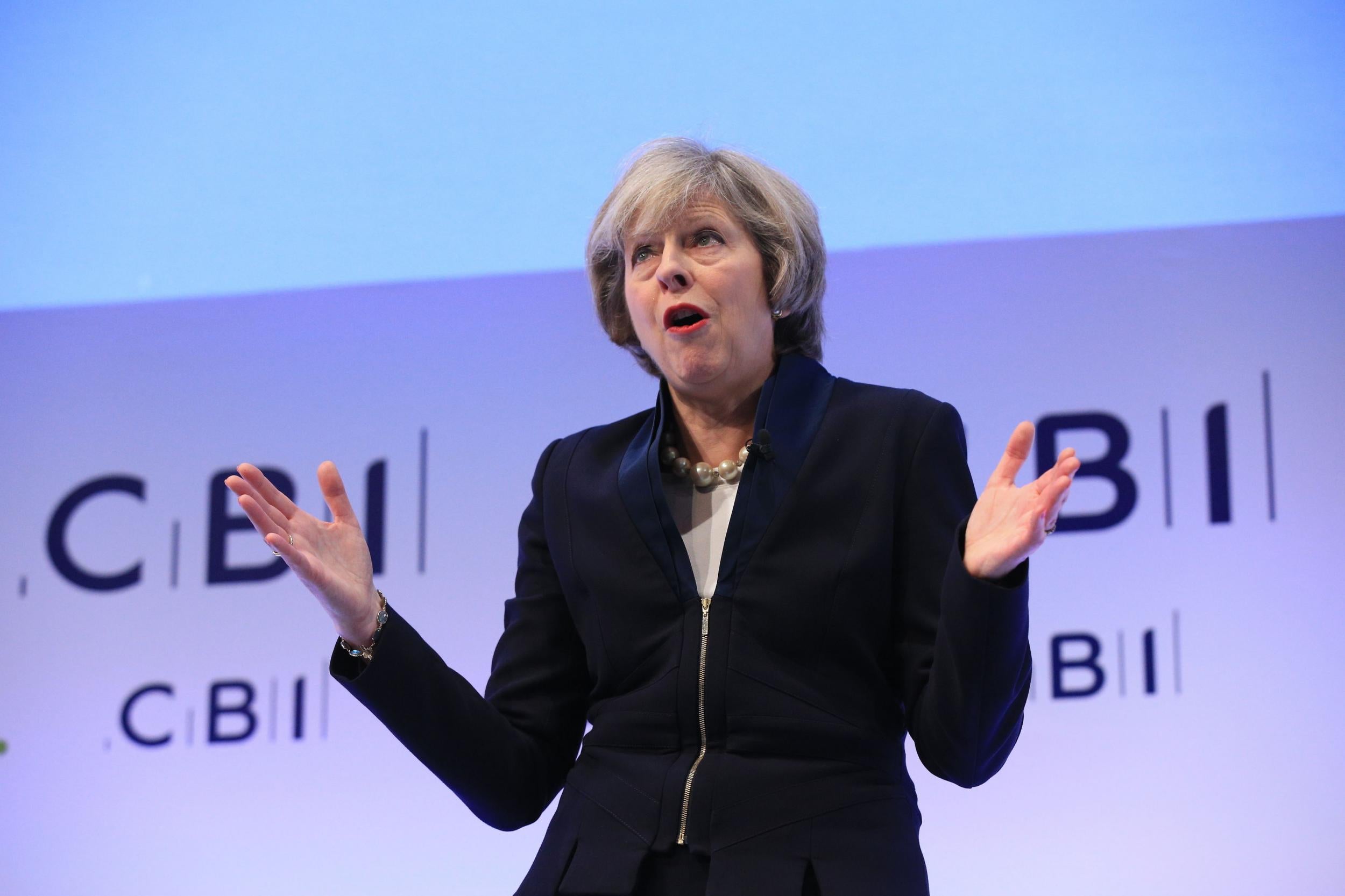There won't actually be any workers on company boards, just in case you still thought Theresa May was serious about holding big bosses to account
The current board structure 'has served us well and will continue to do so', May said this week – the 'us' in question apparently having shifted back from the voters to the bosses pretty sharpish

Your support helps us to tell the story
From reproductive rights to climate change to Big Tech, The Independent is on the ground when the story is developing. Whether it's investigating the financials of Elon Musk's pro-Trump PAC or producing our latest documentary, 'The A Word', which shines a light on the American women fighting for reproductive rights, we know how important it is to parse out the facts from the messaging.
At such a critical moment in US history, we need reporters on the ground. Your donation allows us to keep sending journalists to speak to both sides of the story.
The Independent is trusted by Americans across the entire political spectrum. And unlike many other quality news outlets, we choose not to lock Americans out of our reporting and analysis with paywalls. We believe quality journalism should be available to everyone, paid for by those who can afford it.
Your support makes all the difference.Well, that didn't last long. It has been less than two months since Theresa May announced the end of Cameron-esque kowtowing to the global business elite and hailed a new era of middle-class Conservatism – one that would curb the elite's excesses in order to preserve the public's increasingly fragile faith in the capitalist system. Companies would now pay their taxes, have workforce representation on their boards, and actually train new workers again instead of importing off-the-shelf talent from overseas. In the new Prime Minister's words, the country would be "a Britain where everyone plays by the same rules".
It seems that the corporate bigwigs May had in mind – accustomed to special treatment and already unhappy with the Brexit vote – didn't like the idea of returning to a level playing field very much and have been communicating their displeasure behind the scenes. Because this week the Prime Minister did a complete 180 and stated – tellingly at the CBI's annual conference – that there were going to be no workers on company boards after all.
The current board structure "has served us well and will continue to do so" – the "us" in question apparently having shifted back from the voters to the bosses pretty sharpish.
May's U-turn suggests she's found little support for her policies in her party, which is heavily dependent on donations from these same corporate types. Public concern about executive pay, feeble employee remuneration and widespread corporate tax avoidance therefore continues to be ignored, fuelling the belief that the government can no longer keep big business in check.
An interesting historical parallel (and a guide to the potential pitfalls for politicians) can be found in the very different Britain of the late 1960s. Back then, Harold Wilson, another centrist prime minister, was facing a very similar challenge to Theresa May's today: a growing perception among voters that his party's main donors were enemies of democracy and of the national interest. Only back then the bad guys were the bosses of the major trade unions, not the FTSE 100.
Strange as it may seem today, this was a time when many believed that over-powerful trade unions effectively controlled the government, forcing it to act against the interests of the general population. Wilson knew this, but was facing a divided party (another similarity with May). He therefore requested that Secretary of State for Employment Barbara Castle draw up plans to curtail the power of the union bosses in secret.
The resulting White Paper, 'In Place of Strife', was published in January 1969 – and was effectively dead in the water by June, opposed by the unions, the Cabinet and a majority of Labour MPs. Unimpressed, the voters booted Wilson out of power the following year, while the unreformed relationship between trade unions and government soured further throughout the 1970s. Eventually voters decided they'd had enough: in 1979 they elected Margaret Thatcher to smash the unions for good – and the rest is history.
It's too early to tell if Theresa May's recent climbdown will be her undoing. But it certainly bodes ill for her administration if she can't pass even minor checks on the company bosses' power into law. Public anger towards an economic system they regard as unfair isn't going away and has already been dramatically demonstrated through the results of the EU referendum and the growing popularity of anti-establishment parties like Ukip. Unless she can quickly engineer a real boost to people's incomes (already unlikely due to Brexit),Theresa May might find the national mood moves from 1969 to 1979 much faster this time around.
Join our commenting forum
Join thought-provoking conversations, follow other Independent readers and see their replies
Comments